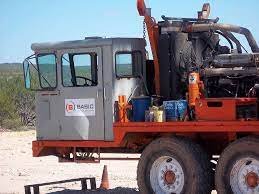Last Updated on January 15, 2026 by Rida Gul
Oilfield equipment gets exposed to harsh environments daily. And while it’s made to withstand some wear and tear, it’s still destructible. If a business in this industry wants to maintain profits, it has to reduce its expenses, which means preserving equipment for as long as possible. This will reduce the cost of unnecessary repairs and replacements. Take a look at some of the best practices for handling and transporting oilfield equipment.
Table of Contents
Regular Predictive Maintenance
Any oilfield company, from big names like Shell or service based oil field support companies like Renegade Wireline Services uses predictive maintenance that involves testing the equipment occasionally to keep track of the different parts. This allows you to predict when a part will require maintenance or replacement. This type of maintenance reduces the frequency of unplanned maintenance and downtime caused by equipment failure. As a result, you can increase your bottom line.
While predictive maintenance costs money, you can’t compare that with how much it will cost to replace these parts if they break down prematurely because of improper handling. Once you start doing this, you’ll notice that your operating costs have decreased due to handling your equipment with care.
Practice Preventive Maintenance
Just like predictive maintenance, preventive maintenance involves inspecting the equipment. The difference is that the latter is done at predetermined intervals. For instance, you can decide that you’ll be doing preventive maintenance on the drilling equipment every three months. Even if the equipment is still performing at its peak, as long as you are scheduled for maintenance, a crew will come in and check the condition of the equipment.
This type of maintenance involves cleaning, replacing worn-out equipment, and repairing what is damaged. One of its advantages is that it reduces the cost of unplanned downtime. It also lengthens the lifespan of the equipment and promotes a safe environment for the people working in the oilfield.
Create a Proper Transportation Plan
If, at any point, you’ll need to transport the equipment, first come up with a transportation plan. It should cover the equipment to be transported, who will handle the transportation, and on which date. Consider factors like dimension and weight to find the appropriate means of transport. If you’re transporting hazardous equipment, ensure it’s properly sealed.
Proper Training of Operators and Technicians
While you may have the best equipment, it’s of no use to you if the people operating it haven’t been trained adequately. They will make mistakes that endanger not only the equipment but their safety as well. When hiring new people, take the time to train them how to use the equipment. And when you bring in new equipment, bring in a specialist who will train the team on how to handle the equipment. You’ll be avoiding the many risks associated with a lack of training in your workplace.
Plan for Emergencies
Lastly, you need to plan for emergencies because anything can happen on an oil rig. Equipment can fail, operators can get injured, or there might be spills. Ensure the operators are trained to handle such scenarios and react quickly to prevent further loss or damage.
Here at Solid Hook, their team really gets how businesses have those unique and tricky needs when it comes to moving around equipment and stuff that needs to be picked up or dropped off at ground level.
That’s why they’re stoked to share top-notch tilt service, paired up with their trusty Roll Off Trucks. It’s all about making things super easy for the customers in Ontario when it comes to getting their equipment where it needs to be. Their cargo handling services cover a bunch of industries, like construction, manufacturing, agriculture, and more. Whether they’re hauling heavy machinery or delivering farm equipment, their float services are all about being versatile and fitting different industry needs.
Proper handling and transportation of oilfield equipment is something every business in this industry should practice. It will cut costs, prevent injuries and increase efficiency.
Apart from that, if you are interested to know about How to Maximise a Small Office then visit our Business category.
















